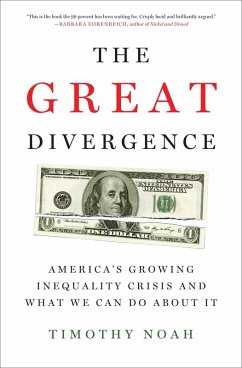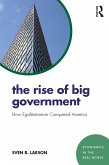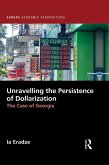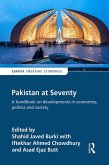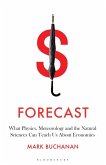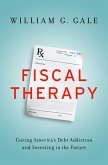For the past three decades, America has steadily become a nation of haves and have-nots. Our incomes are increasingly unequal. This steady growing apart is often mentioned as a troubling indicator by scholars and policy analysts, though seldom addressed by politicians. What economics Nobelist Paul Krugman terms "the Great Divergence" has till now been treated as little more than a talking point, a rhetorical club to be wielded in ideological battles. But this Great Divergence may be the most important change in this country during our lifetimes-a drastic, elemental change in the character of American society, and not at all for the better.
The inequality gap is much more than a left-right hot potato-its causes and consequences call for a patient, non-partisan exploration. Timothy Noah's The Great Divergence, based on his award-winning series of articles for Slate, surveys the roots of the wealth gap, drawing on the best thinking of contemporary economists and political scientists. Noah also explores potential solutions to the problem, and explores why the growing rich-poor divide has sparked remarkably little public anger, in contrast to social unrest that prevailed before the New Deal.
The Great Divergence is poised to be one of the most talked-about books of 2012, a jump-start to the national conversation about the shape of American society in the 21st century, and a work that will help frame the debate in a Presidential election year.
The inequality gap is much more than a left-right hot potato-its causes and consequences call for a patient, non-partisan exploration. Timothy Noah's The Great Divergence, based on his award-winning series of articles for Slate, surveys the roots of the wealth gap, drawing on the best thinking of contemporary economists and political scientists. Noah also explores potential solutions to the problem, and explores why the growing rich-poor divide has sparked remarkably little public anger, in contrast to social unrest that prevailed before the New Deal.
The Great Divergence is poised to be one of the most talked-about books of 2012, a jump-start to the national conversation about the shape of American society in the 21st century, and a work that will help frame the debate in a Presidential election year.

